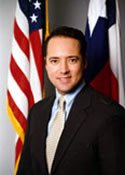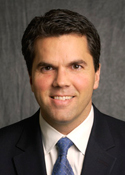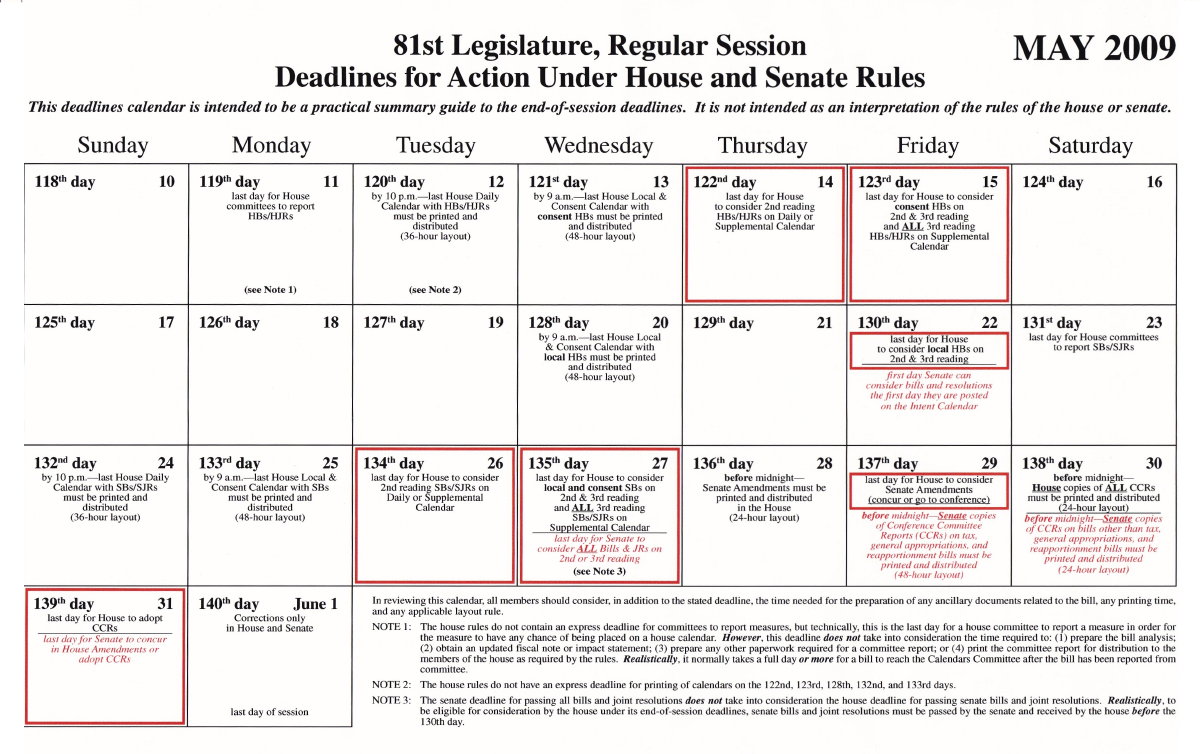Crunch Time
You get the feeling that this legislative session is just like the last one, run in reverse. Instead of starting with a whimper and closing with a bang, it started with a bang. It shows no signs of ending with one.
The testy part of the session — at least in terms of pressure and deadlines and sleep deprivation — is just ahead. Next week, the various deadlines in the House and Senate rules begin to kick in. As of next Tuesday, for instance, a House bill that hasn't been voted out of committee will likely die there. House bills that aren't out of the west end of the Capitol by the end of next week are bound for the recycling bins. And so on.
There's just not as much to be tense about this year. The partisan bubble popped when the House toppled sitting Speaker Tom Craddick in January. The biennial tussle over money ended when the federal government sent $17 billion to Texas and effectively ended the conversation over whether or not lawmakers should dip in to the Rainy Day Fund or make some cuts.
The Senate popped up a new Medicaid number this week, saying the prices have risen $1 billion, endangering any new spending idea that might arise in the last weeks of the session. Soon, Comptroller Susan Combs will unveil her latest estimate of how much money will be available for state spending over the next two years. She hasn't said out loud what she's going to announce, but the smoke signals aren't optimistic.
Big and Possibly Harmless (For Now)
The Senate included $750 million in their two-year budget for Medicaid growth. In the House bill, there's no money for that. And now, health and human services folks are telling budgeteers that at least another $1 billion will be needed for Medicaid, and maybe as much as $1.8 billion.
So that leads to the second difference of opinion between the upper and lower appropriators, which is related: How much money to spend, and when? While the Senate — through Finance Chairman Steve Ogden, R-Bryan — is talking budget crunch, House Appropriations Chairman Jim Pitts, R-Waxahachie, says lawmakers can wait until they come back in 2011 to take care of at least part of that funding.
He suggests they write the budget now without worrying over Medicaid and come back early in the next session, find out what it'll take to cover any deficit in that ever-growing program, and put it in that session's supplemental appropriations bill. That's the bill that takes care of unexpected stuff in a current budget while most of the attention is on writing a new budget.
And he's got plenty of precedent to back the idea. This year's supplemental appropriations bill — which isn't complete and won't be for a couple of weeks — totals well over $3 billion and could easily reach $4 billion before the Legislature is through. These used to be relatively small bills designed to pick up unexpected expenses that came up between legislative sessions.
Half of the current $3.3 billion version is for Medicaid. That $1.6 billion effectively covers a deficit left in that program when the current budget was written two years ago; had the money been included at that time, there'd be no need for it in the supplemental bill.
In fact, it's not unusual for Texas lawmakers to short-sheet Medicaid when they're writing the budget, knowing they can settle up two years later. Also, since it's an entitlement program, they don't have to worry that someone will go unserved in the meantime: The state doesn't have the option of not providing the service in that state-federal program.
The short sheeting helped budget-writers get out of a spending hole in 2003 and has been almost a structural part of the budget since then. It's not all games, either: The Medicaid numbers are notoriously hard to predict and the later numbers — those that go into the supplemental budgets — are firmer than the forecasts available two years earlier.
The estimates made now for the 2010-11 budget could change, for instance, if unemployment rates in the state go up. As unemployment gets worse, the federal matching ratios for Medicaid get better — the state gets a better match if unemployment is high. So that could change. The feds could put more stimulus money into Medicaid and that would change the numbers. Or the caseloads, costs of service, and utilization rates — the three big variables for clients of the program — could change. Even a small change in the growth rate of any of those three things can translate into a huge change in the overall cost of the program.
The Center for Public Policy Priorities dug into the numbers. Part of what happened is that the HHSC estimators raised their caseload estimates in April. And the Legislative Budget Board, which low-balled the numbers earlier this year, is now predicting higher caseloads than the health and human services folks. But nobody will know the actual numbers until the services are rendered.
All of that will be clearer in January 2011 than it is today, whether they try to include the money in the budget now or not.
If lawmakers stick to their current pattern, the Senate will want to put some money for Medicaid into the budget they're writing now; the House will want to hold back and put most of it in the supplemental bill two years from now.
Either way, they'll settle up the differences between what's predicted and what actually happens when they come back in two years, just as they're doing now with the budget they wrote in 2007.
Not Sweating It
Lots of folks have been knocking the House this session for moving too slowly under new House Speaker Joe Straus. Recently, Rep. Kino Flores, D-Palmview, earned some headlines for being a squeaky wheel about a veterans' bill he thought had stalled. But word is that Flores' situation is the exception, not the rule, and overall, the mood of the House seems copacetic despite bill-killing deadlines that start kicking in next week.
"A few people are disgruntled," says Rep. Alma Allen, D-Houston, "But it's been a banner year for me."
On the surface, it may have seemed as if the House was lagging, but all the while committees were working steadily, Allen says. She credits Straus for his committee assignments, saying, "It makes people feel good to be on a committee they want to be on."
It also helped that Straus — and Calendars Chairman Brian McCall, R-Plano — surveyed members as to their top three legislative priorities, says freshman Rep. Marisa Marquez, D-El Paso. Meanwhile, second-term Rep. Solomon Ortiz, Jr., D-Corpus Christi, says Straus' management has made for a "smoother process" in the House overall.
Rep. Larry Phillips, R-Sherman, thinks the lower chamber has made up a lot of ground in the past week and that there's still time to get things done.
"It's hard to be critical at this point," he says.
"We went through 65 bills in two-and-a-half hours the other day. That's hardly 'slow,'" says Rep. Charlie Geren, R-Fort Worth.
Contentious issues remain, like the Texas Department of Insurance sunset bill, voter ID, guns on campus, and unemployment insurance stimulus funds, among others. Members are saying they expect a voter identification bill will be voted on (though some are crossing their fingers that it won't).
"Everybody thinks it's stuck in committee. But we'll get it adjusted, and come up with a better deal than the Senate," says Rep. Delwin Jones, R-Lubbock.
By "better," Jones thinks the House will settle on a standard comparable to what is required to get on a commercial airplane flight.
The House will vote the ID bill out of committee next week and substitute it on the floor for the Senate version, predicts Jones, one of five House Republicans not to sign onto a list of voter ID demands that circulated last week.
While they're not blaming House leadership, members still have worries that some legislation may not make it through, mentioning big-ticket items like windstorm insurance, school finance reform and children's health insurance.
Geren says he and other House members are looking at Senate vehicles to carry their stalled bills. Geren is planning to use that technique on legislation he says would fall in the "Major State" category that gets priority on the calendar, but he wouldn't give us specifics.
Concerns about a special session over the budget are still making their way through the grapevine, Allen says. (Gov. Rick Perry said recently that he's pretty happy with the budgets passed by the two houses and doesn't see veto bait there.)
However, Sen. Leticia Van de Putte, D-San Antonio, says she's confident that legislators will be able to craft a budget by Sine Die, regardless of recent revisions to the amount Texas needs to set aside for Medicaid. Van de Putte says that will be worked out through conference committee, special appropriations in 2011 or some combination of the two.
"I learned early, early on in the session that gambling is not going anywhere. I'm no longer disappointed," says Sen. Kip Averitt, D-Waco.
When asked about a gambling bill's prospects in the lower chamber, Allen says simply: "We have a very religious House."
Averitt says he's also holding his breath over his SB 16, providing incentives for a broad range of air quality improvement measures, as well as SJR 50, which provides long-term funding for the state water plan. Both of those have left the Senate.
"We'll see the attitude of the House toward creating a new bonding authority," he says.
Allen's hoping that the Senate is receptive to her House Joint Resolution 39, post-ratifying the 24th Amendment to the U.S. Constitution, abolishing poll taxes. Last session, she got the measure to the Senate, where it died without a vote.
Rep. Tommy Merritt, R-Longview, takes the existentialist route when asked how things are going. "I'm happy to be alive," he says.
— by a Texas Weekly correspondent
Witching Hours Ahead
The legislative deadlines start kicking in next week. Here's the roadmap:
Click on it to download a copy.
A Break for Small Business
A $172.1 million cut that would free all but 20 percent of the businesses that pay the state's corporate franchise tax is on its way to the Senate after final approval from the House. That chamber approved the revisions with no amendments and no Nays and sent it on to the Senate.
The legislation from Rep. Rene Oliveira, D-Brownsville, would raise the exemption from the tax so that businesses making $1 million or less every year don't have to pay it. The current exemption is $300,000, and businesses below $1 million move through a graduated scale until they hit $1 million and get taxed at the full rate.
Budgeteers have been warning all year that the state needs to pinch pennies in anticipation of fiscal trouble expected in 2011. Those concerns have blocked several spending initiatives this year (especially those that would've dipped into the state's so-called Rainy Day Fund), but weren't raised when the tax bill came to the floor.
One of the original selling points during the 2006 revision of the business tax was that the old version wasn't broad-based — that only the biggest, most capital-intensive companies in the state were paying and that it wasn't fair to put all of the burden on a relative few. This change would move the new tax back in that direction, cutting loose about 39,000 current taxpayers (who'll have paid the tax for just two years) and leaving fewer businesses paying the new franchise tax than were paying the old one.
But legislators, given the choice between that "broad-based tax" argument and a tax break for small businesses, chose Door Number Two, on a 141-0 vote.
The change would only apply for the next two years. If lawmakers don't want the exemption to revert to the current $300,000, they'll have to revisit the tax during their 2011 session.
Democrats: "Voter ID Hearings" Smith: "Maybe"
Democratic leaders in the House — those with chairs and vice chairs — signed a letter asking for more hearings on Voter ID before it gets out of committee. But the Republican chairman of the Elections Committee — Todd Smith, R-Euless — says he's held all the hearings he plans to hold. Later, he said hearings might be possible.
In their letter to Smith and to House Speaker Joe Straus, the Democrats ask for a hearing on "whatever final form" of Voter ID gets the Election panel's consideration. The most recent version floated by Smith would require voters to present at photo ID before voting, and would count their votes as provisional if alternative, non-photo ID is presented. It would also take effect in 2011 — after next year's elections but sooner than in earlier versions of Smith's bill.
But Smith says the public hearings have already been held and that he's trying to get a bill out of committee and to the full House for consideration.
"There's no reason to have any more," Smith says. "What we need is a version of the bill that would have a sufficient number of votes to get out of committee. We're simply moving pieces and parts of legislation that have already been heard."
The letter includes a memo from Democratic election lawyers that contends the failure to hold public hearings on the finished bill could endanger its chances of winning Voting Rights Act approval from the U.S. Department of Justice. Here's their letter.
Things in Motion
The House tentatively approved a full-day pre-kindergarten bill that has morphed from a full-scale formula-funded public school program into a grant-funded expansion of the current half-day program.
And its size will be based on the amount of funds included in the budget; to take in all of the kids now in Pre-K programs would cost around $390 million over the next two years. But Rep. Diane Patrick, R-Arlington, got 109 votes in the House (she had more than 100 co-sponsors) and is now watching to see whether the Senate — which has moved slowly on the legislation — will go along with this milder version.
• The House spiked a proposal to replace the state's three railroad commissioners with just one, but that agency could still get a new name. At least one bill that would rename it as the Texas Energy Commission is still alive and won Senate approval. The current name, supporters say, is outdated.
• Limits on tuition increases at state universities won Senate approval and are working in the House. The Senate would limit annual increases to five percent, and the limits would tighten in years when legislative budget-writers raised spending on those schools. That's Sen. Judith Zaffirini's version. The House has looked at similar bills without the limits on tuition increases in years when the Legislature is stingy. The schools were allowed to control their own tuition in 2003, after complaining that costs were outrunning what the Legislature was willing to spend.
• Backpacks full of textbooks could fall to technology under a bill approved by the House. It would allow school districts to include digital instruction materials in their textbook budgets: electronic books, CDs, laptops and the like. Those materials would still have to come from lists approved by state education officials.
• The Senate put wheels on the eminent domain bill, a politically touchy subject since lawmakers approved it two years ago and ran into a surprise veto from the governor. He's praising the version from Sen. Craig Estes, R-Wichita Falls, which is on its way to the House. Ag groups in particular are pushing the issue, which rose to the top of the pile after a U.S. Supreme Court ruling that it's legal to use eminent domain for economic development purposes.
Things Not in Motion
The proposed ban on smoking in most public places is languishing in the Texas Senate and the backers are starting to get nervous. They've done a poll in Sen. Jane Nelson's district; the Lewisville Republican chairs the committee where the legislation is smoldering.
In that survey of Republican primary voters, 62 percent said they favor a statewide law "that would prohibit smoking in all indoor workplaces and public facilities including public buildings, offices, restaurants, and bars" (Baselice & Associates, May 3, 201 Republican primary voters, +/- 7.0% margin of error). Here's the nub of it: 58 percent of those Republicans said they'd have a positive impression of someone in the leadership of the fight, and 57 percent would be more likely to vote for an advocate of the ban in a primary. Subtle, huh?
In a statewide survey, the same firm found 55 percent of GOP primary voters favor the ban, and 41 percent oppose it (Baselice, May 3-4, 503 Republican primary voters, +/- 4.5% margin of error).
• The Senate voted to accept federal stimulus funds for unemployment insurance (UI) and so did a House committee, but that's bottled up in the House Calendars Committee. Gov. Rick Perry is against it and would probably prefer that the House kill it. At a minimum, he's the Lege doesn't approve it until it's too late to override a veto.
• The effort to put the State Board of Education into the sunset process — where it would be reviewed every 12 years by the Legislature — rose one day and died the next. The House tentatively and narrowly approved the idea and then, 24 hours later, narrowly killed it.
Chasing Kay, Chasing Rick
Gov. Rick Perry's political team still has their candidate trailing potential challenger Kay Bailey Hutchison, but they say the margin is narrower than it was the last time they looked.
The Perry folk are spinning it as evidence that Hutchison's support is fragile and claim in a letter to supporters that they see the race as a statistical dead heat (if it is, those were not among the numbers in the pollster memo they released to their supporters). The Hutchison folk note that the governor is losing even in his own survey.
From Perry spokesman Mark Miner: "The senator's lead disappeared faster than the Wall Street bailout dollars she voted for."
From Hutchison spokesman Hans Klingler: "Rick Perry must be very disappointed that after 10 years as Governor, weeks of grandstanding rhetoric subjecting Texas to ridicule across America, and ignoring his responsibilities to lead during the legislative session, he has the support of only 39% of Republican primary voters. This is both dismal and a formula for failure."
The survey by Austin-based Baselice & Associates — the governor's pollster — showed Hutchison 11 percentage points ahead of Perry in a straight-up poll (Baselice, 503 Republican primary voters, May 3-4, margin of error +/- 4.5 percent). Hutchison leads Perry 47% to 36% in that version. Add their titles — Gov. Rick Perry and U.S. Sen. Kay Bailey Hutchison — to the possible answers, and Republican primary voters put Perry in front, 43% to 42%. And the pollsters averaged those two results to conclude Hutchison leads Perry 45% to 39% right now. See the memo here.
The respondents were overwhelmingly opposed to the federal bailouts of Wall Street and the auto industry — two federal issues that Perry has already been connecting to Hutchison. They think, by a two-to-one margin, that the Republican Party is on the wrong track, and they blame Republican leaders in Washington rather than Republican leaders in Texas for that problem.
The race isn't officially on yet, and it's safe to assume there will be more polling released — from third parties and the campaigns — in the weeks following the legislative session. Perry has said he'll seek another term in 2010. Hutchison is exploring a race and moved most of her political treasury from a federal to a state account. Three Democrats have said they're looking: former U.S. Ambassador Tom Schieffer of Fort Worth, state Sen. Leticia Van de Putte of San Antonio, and writer/musician Kinky Friedman of Medina.
A day later, the Perry camp floated a second pollster memo featuring two questions about whether Hutchison ought to give up her spot in the U.S. Senate to run for governor. Most — 63 percent in one question, 67 percent in the other — said she should serve out her term. Again, the caveat: It's the governor's pollster and they're selectively releasing the best bits.
Another day, another poll: Rasmussen has Perry ahead of Hutchison in a hypothetical GOP primary race for governor in 2010. Perry got 42 percent to Hutchison's 38 percent in the survey of likely Republican primary voters (Rasmussen, 700 likely Republican primary voters, May 6, +/- 4 percent). See their survey here.
Doppelgängers
In which we present a debate transcript featuring Reps. Debbie Riddle, R-Tomball, at the back microphone in the House, and Democrats Rafael Anchia of Dallas, Jose Menendez of San Antonio, and Mark Strama of Austin at the front mike. The setup: Anchia is presenting a bill for Strama, who wasn't in the room when his bill came up on the calendar. Reps. Menendez and Patrick Rose of Dripping Springs had non-speaking roles. Pictured in order:





Riddle (questioning Anchia about his bill): Rep. Strama? I haven't had a chance...
Anchia: I'm Rep. Menendez. I'm sorry.
Riddle: I'm sorry. Forgive me. Do you know, is there... Rep. Menendez, I was looking at Strama here. I know the difference. Is there a... is there a... is there a fiscal note with this?
Anchia: Let me look.
Riddle: This is a serious bill and I have a serious question.
Anchia: Yes, it is.
Anchia (to Mendendez, walking by): Thank you, Mr. Anchia.
Anchia (to Riddle): I'll tell you what. Here it is. It says there is no fiscal implication to the state, nor local government.
Riddle: Do you know if they're going to be working with the non-profit 501c3 organizations like the Reed Commission and like Houston-Harris County Literacy Advance and other organizations like that?
Anchia: They are able to work with any of those groups, however, the membership, just to be clear, of the interagency literacy council is TEA, HECB, and TWC.
Anchia (referring to Strama, beside him): Hold on. Let me turn it over to Rep. Rose. Hold on.
Speaker Joe Straus: The chair recognizes Rep. Strama.
Strama: Thank you, Mr. Speaker. I apologize. Rep. Riddle, what's your question? Sorry.
Want to watch it? Go here and start at 24:24.
An Officer, Not a Gentleman
The head of the state police is out after women in the agency complained to the board about his behavior. Col. Stan Clark, interim director of the Department of Public Safety since September of last year, is resigning at the end of the month after 36 years with the agency. Col. Lamar Beckworth was chosen by the board to act as director until a permanent leader is hired. The agency issued a copy of a complaint against Clark, and Allan Polunsky, chairman of the Texas Public Safety Commission issued a terse statement: "This is an elite law enforcement agency. We expect all our employees to demonstrate the highest degree of professionalism. The director must set the example for all employees in their workplace communications. Col. Clark has acknowledged his failure to adhere to those high standards and has chosen to retire at the end of this month. We are disappointed by this matter, and we are committed to moving on in our search for a director."
Political People and Their Moves
John Malcolm Bales of Nacogdoches is the new U.S. Attorney for the Eastern District of Texas, replacing Rebecca Gregory, a Bush Administration appointee who's going to work for Texas AG Greg Abbott. Bales has been first assistant and chief of the criminal division in that office.
Bryan Shaw was confirmed for a spot on the Texas Commission on Environmental Quality, but only after a handful of senators blasted him and the agency for being too close to the industries they regulate. Shaw, a Texas A&M engineering professor, won a term on the board on a 20-7 vote.
Ross Melinchuk will head the natural resource divisions as the new deputy executive director of the Texas Parks & Wildlife Commission. He's been with Ducks Unlimited since 1992.
Gov. Rick Perry has revved up the appointments office, naming folks to boards and such:
• Joe Shannon Jr. will be Tarrant County's district attorney until the 2010 elections. Perry named Shannon, an assistant DA to the late Tim Curry and a former state lawmaker to serve the rest of Curry's term.
• Attorney Robert Fillmore of Plano to the 5th court of Appeals, replacing Amos Mazzant of Sherman, a Perry appointee who moved up to a federal magistrate appointment.
• George "Trey" Henderson III to the Texas Ethics Commission, replacing Raymond "Tripp" Davenport III. Henderson is president of Angelina Hardwood Sales Co. of Lufkin.
• Mary Baty of Humble, Bill Birdwell of Bryan, Whitney Hyde of Midland, and Rudy Ramos Jr. of Houston to the Texas State Board of Dental Examiners. Baty is a dental hygienist. Birdwell and Ramos are dentists. And Hyde is a court administrator.
• Patti Johnson of Canyon Lake, owner of Patti Kaykes Enterprises, to the State Commission on Judicial Conduct.
• Lori McCool of Boerne, a CPA and a principal of WoodWay Associates, to the Finance Commission of Texas.
• Christina Martin of Mission, Imogen Papadopoulos of Houston, and Scott Rosenbach of Amarillo to the Department of Family and Protective Services Council. Papadopoulos, an attorney, is being reappointed. Martin owns and runs a travel agency. Rosenbach is pastor of administration at Trinity Fellowship Church.
• Glenda Kane of Corpus Christi, Lewis Foxhall of Houston, and Nasruddin Rupani of Sugar Land to the State Health Services Council. Kane and Foxhall are being reappointed. Rupani, president of World's Gold and Diamonds, is new to the board.
• Diego Demaya of Houston, Berkley Dyer of Austin, and Mary "Jody" Unruh of Houston to the Department of Assistive and Rehabilitative Services Council. Demaya is a human resources educator and legal specialist with the Memorial Hermann Healthcare System. Dyer is a community volunteer. And Unruh is a self-employed pastoral counselor and property manager.
• Bill Strawn, a retired executive recruiter from Austin, to chair the Judicial Compensation Commission, and added Cruz Hernandez of Burleson and P. Bane Phillippi of Cedar Creek to that board. Hernandez is a teacher's aide; Phillippi is an attorney.
Dr. William Fleming is the new president of the Texas Medical Association and the first African-American to hold that position. He's a clinical assistant prof of neurology at the UT Medical School in Houston.
Deaths: Retired Houston Chronicle political reporter Jane Ely, a wonderful, wonderful old-school journalist, from respiratory illness. She was 69.
Quotes of the Week
Scott Henson, a blogger who closely follows criminal justice issues, telling The Dallas Morning News that Texas has 2,300 felony laws on the books, including nearly a dozen involving oysters: "At this point, we've criminalized everything that remotely needs to be criminalized."
State Board of Education member Pat Hardy, R-Fort Worth, on that panel's messy relationship with the Lege, in the Austin American-Statesman: "We've drawn the ire of these people because we have done some screwball things."
Sen. Steve Ogden, R-Bryan, on a proposal to spend $7 million on birth control pills for women, quoted by the Associated Press: "Why can't they pay for it themselves?"
Keshav Rajagopalan, 22, former student body president at UT-Austin, telling The Dallas Morning News that some laws aimed at his generation don't make sense: "A 17-year-old who is texting while driving is just as dangerous as a 25-year-old, and a 40-year-old is even more dangerous because they don't know how to text."
Rep. Harold Dutton, D-Houston, quoted on the subject of cockfighting in the San Antonio Express-News: "Why do we make such a big deal about chicken fighting? When I go to Popeyes, how do I know how it died?"
Texas Weekly: Volume 26, Issue 18, 11 May 2009. Ross Ramsey, Editor. Copyright 2009 by Printing Production Systems, Inc. All Rights Reserved. Reproduction in whole or in part without written permission from the publisher is prohibited. One-year online subscription: $250. For information about your subscription, call (512) 302-5703 or email biz@texasweekly.com. For news, email ramsey@texasweekly.com, or call (512) 288-6598.
Texas Tribune donors or members may be quoted or mentioned in our stories, or may be the subject of them. For a complete list of contributors, click here.
Information about the authors
Learn about The Texas Tribune’s policies, including our partnership with The Trust Project to increase transparency in news.

/https://static.texastribune.org/media/profiles/ramsey-ross_TT.jpg)